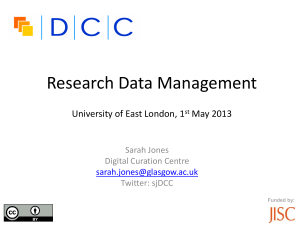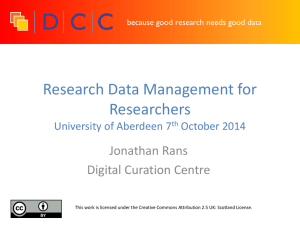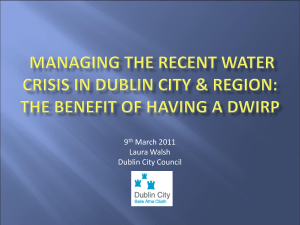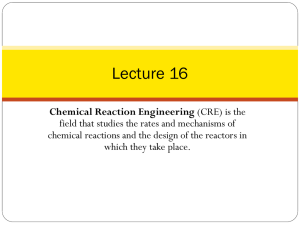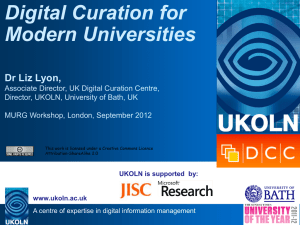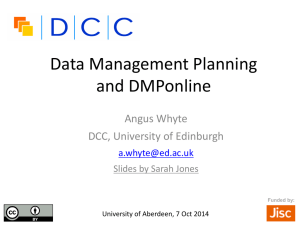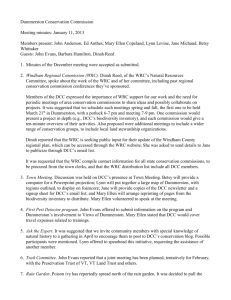Opening Statement Irish Monumetal Firms Association
advertisement
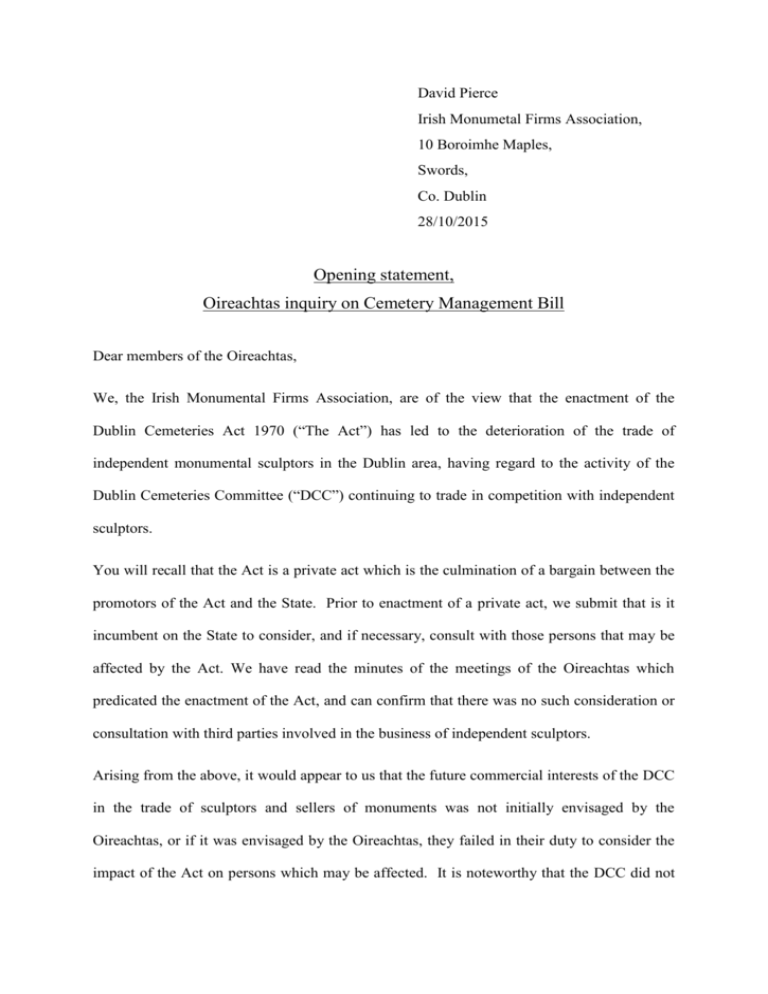
David Pierce Irish Monumetal Firms Association, 10 Boroimhe Maples, Swords, Co. Dublin 28/10/2015 Opening statement, Oireachtas inquiry on Cemetery Management Bill Dear members of the Oireachtas, We, the Irish Monumental Firms Association, are of the view that the enactment of the Dublin Cemeteries Act 1970 (“The Act”) has led to the deterioration of the trade of independent monumental sculptors in the Dublin area, having regard to the activity of the Dublin Cemeteries Committee (“DCC”) continuing to trade in competition with independent sculptors. You will recall that the Act is a private act which is the culmination of a bargain between the promotors of the Act and the State. Prior to enactment of a private act, we submit that is it incumbent on the State to consider, and if necessary, consult with those persons that may be affected by the Act. We have read the minutes of the meetings of the Oireachtas which predicated the enactment of the Act, and can confirm that there was no such consideration or consultation with third parties involved in the business of independent sculptors. Arising from the above, it would appear to us that the future commercial interests of the DCC in the trade of sculptors and sellers of monuments was not initially envisaged by the Oireachtas, or if it was envisaged by the Oireachtas, they failed in their duty to consider the impact of the Act on persons which may be affected. It is noteworthy that the DCC did not trade commercially in the sale of monuments for a number of years post the enactment of the Act. In 1975, Dublin Corporation demanded rates from the committee arguing that making and selling headstones was not a charitable activity. The definition of a private act is “as opposed to matters of public policy”. The provision of headstones was always a matter of public policy, i.e. made and sold by tradesmen, therefore a private act is not a proper legislative instrument for this activitiy. The purpose of a private act is to afford relief to a party from other laws, and to grant a unique benefit to such party which is not available in general law, i.e. it is for a specific purpose. It appears to us that the purpose of the Act was to promote and assist the enhancement of Glasnevin Cemetery, but we submit that the Act goes way beyond affording the DCC the power of assisting the enhancement of Glasnevin Cemetery, insofar as it affords the DCC the right to acquire further cemeteries to advance a commercial object. Historically, all private acts have been confined to one project and one location, for example a bridge or harbour or a tramway. All other private acts with regard to cemeteries have confined their promotors to one location. This is a simple and logical rule adhered to for hundreds of years, otherwise how could parties whose private interests may be affected by the future activities of such promotors be aware of what lies ahead. The DCC now owns and controls five cemeteries. Standing orders of the Oireachtas require promotors of a private Act for the purpose of cemeteries or crematoria to correspond in writing to all households within 300 yards of their proposed new venture. The DCC has not once complied with this order. Noting the granting of charitable status to the DCC by the state, it would appear that the power to pursue commercial objects, the actual pursuit of commercial objects, all coupled with the application of funds not specifically directed to the preservation and enhancement of Glasnevin Cemetery is completely at odds with the charitable status afforded to the DCC. It is further questionable whether the affording of charitable status constitutes state aid which potentially contravenes competition legislation (see enclosure from The Competition Authority). Of great concern is the lack of redress available to those offended by the Act. There is no role for a government minister and absolutely no regulation of the DCC’s activities. Over a number of years we have contacted various Environment and Justice Ministers and Taoisigh Bertie Ahern and Enda Kenny. They have all stated that as the law stands at present they have no control over the DCC. The Revenue Commissioners have refused to meet us and are claiming client confidentiality. The DCC is also outside the ambit of the freedom of Information Act. Furthermore, the Competition Authority have come to the conclusion that state aid is outside its remit and is of no help to us. The European Commission has stated that unless the activities of the DCC affect intra EU trade there is no case to answer. In 2009 the Supreme Court, in David Pierce T/A Swords Memorials v. The Dublin Cemeteries Committee, found that the commercial sale of headstones was intra vires. However Mr. Justice Nicholas Kearns, in a dissenting judgement, stated that the DCC was a philanthropic body and that the DCC 1970 Act did not confer on it the power to retail headstones commercially. Furthermore, he said he was fortified in his belief because the Act clearly envisaged charitable status, and as such, these positions were mutually exclusive. The fact that eminent Judges can arrive at totally different conclusions indicates how carelessly this Act was framed. A private act is meant to be a very strictly construed, with no room for ambiguity or wide interpretations. If the sale of headstones was intended, then affected parties should have been notified. However if the sale of headstones was not intended, then the legislation was shoddily constructed. To conclude, we the Irish Monumental Firms Association in our presentation to this Oireachtas Committee, will show how the activities and powers of the DCC have led to the closure of over twenty Dublin Monumental firms, including the iconic firm Farrells of Glasnevin (incidentally, during this period the number of monumental sculptors in Cork, Galway and Limerick has trebled). We will also show how our firms’ turnovers have collapsed. The DCC is an unelected, unregulated and unaccountable body which consistently abuses its regulatory powers to gain competitive commercial advantage. It is a body of perpetual succession consisting of thirteen private individuals with very wide and unfettered powers, and is out of place in a democratic society. There really should be no place for it in a modern Ireland. They need to be under the authority and scrutiny of a regulator or at the very least of a government minister. This problem originated in the Oireachtas, and can only be repaired by the Oireachtas. Yours sincerely, David Pierce On behalf of the Irish Monumental Firms Association.

